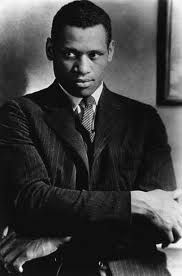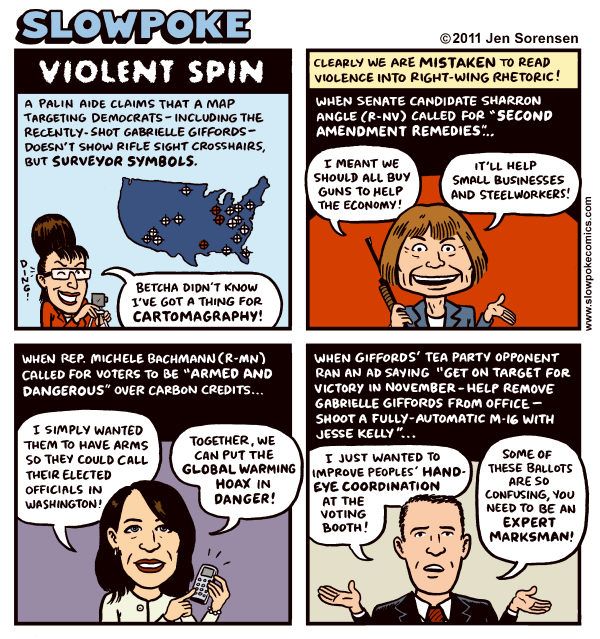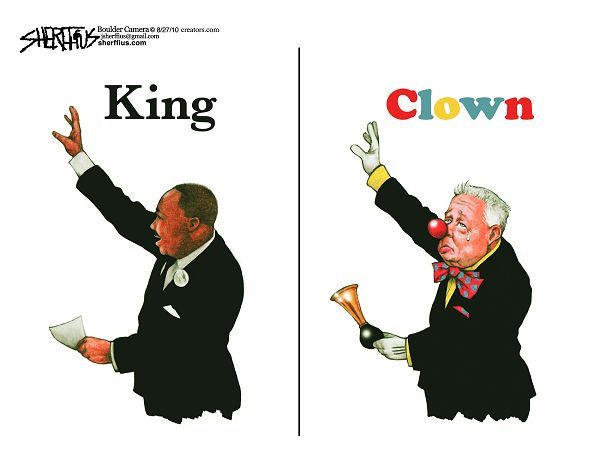This has been a busy weekend — dividing time somewhat schizophrenically between participating in one or the other of the many actions sparked by the decision in Ferguson not to indict police officer Darren Wilson for the murder of Michael Brown — while at the same time planning an annual Thanksgiving meal. Being a “conscious” political and multi-racial “family”, on past Thanksgivings we often commemorated the day by attending a local American Indian event. As the years past, we reverted to a somewhat more traditional community potluck dinner with friends with turfu, organic dishes, etc. Still later, as biological families divided into nuclear subdivisions with children, somewhat smaller gatherings were held where we would prepare the traditional feast with a nod to and solemn commemoration of the genocidal history behind the holiday and watch a socially conscious movie.
This year, someone suggested that we Watch Do the Right Thing. (In full disclosure, we did not end up watching Do the Right Thing because one young black guest who happens to be gay felt that he had been bullied by his peers in the neighborhood as he was growing up and it would be a painful reminder (he still lives in central Harlem about a block from the National Action Headquarters) and another young black woman felt that she needed a break from the intensity of the explosion of feelings and responses that the Ferguson decision brought on. Life is often more full of contradictions and ambiguities than our political struggle for justice would suggest.
Still, the reminder of the controversial movie, first released to great criticism as to whether it was promoting violence or showing how destroying property was better than killing human beings, reminds us how a cultural representation can help people understand the emotions behind our struggle in a way that facts and figures can’t.
First released in 1989, Do the Right Thing, one of Spike Lee’s earliest movies, tells the story of the racial tensions in the black community in a Brooklyn neighborhood which culminates in tragedy when a young black man is killed by police. The young man’s death results in a night of rebellion in which the people in the community burn down local businesses including the local pizzeria.
The movie was released long after the racial tensions and the riots of the 1960s which it was meant to portray, and before the Rodney King beating in 1991 resulted in the rebellion in Los Angeles. Long before 41 bullets felled Amadu Diallo, the African immigrant shot at his front door by police in the Bronx, or the brutal torture of Abner Louima who was beaten and sodomized with a broomstick by police after he was arrested outside a Brooklyn nightclub. (Sidenote: Neither of these later incidents resulted in riots, but in organized nonviolent civil disobedience and, eventually in sort of very limited conviction of some of the perpetrators. It is interesting to note, however, the Louima case only came to light after a nurse reported the incident when he was brought to the hospital. She was the only one of 28 people who had witnessed parts of the incident the night he was arrested. The other 27 people threatened her for speaking out.)
In Do the Right Thing, Lee sets out the many cultural signifiers of the community’s racial tensions that lead to the violence of both police brutality and the violence of enraged communities of color — in other words, the very American history of the culture of oppression in the black community:
Mookie, played by Spike Lee, is the young man who, as the pizza delivery man, is viewed by a frustrated Tina, his girlfriend and mother of his child, as unambitious and unable or unwilling to live up to the model of the father and family man that is portrayed on TV, reflecting the tensions between the sexes in a community held down by racism.
Sal, the pizzeria’s Italian American owner, has been in the neighborhood for 25 years. His older son is openly racist while his younger son is friendly with Mookie. Sal sees himself as part of the neighborhood, but when asked by Smiley, a mentally disturbed young man who is always carrying around pictures of Malcolm X and Martin Luther King, Jr., and “Bugging Out” (described by his name)to put up pictures of Malcolm and Martin on his “Wall of Fame”, along with the Italian Americans such as Sinatra, he refuses because, as he says, he owns the restaurant.
There are many other signifiers — “Da Mayor,” an old alcoholic man who signifies street wisdom and compassion (but who is not respected by the younger generation in the neighborhood), the young men who hang on the corner, the Asian store owner who signifies new cultures moving into the neighborhood and the conflict that brings (but who can hold her own in a swearing match in a confrontation with her black American neighbors).
But most significant is Radio Raheem, a big young black man who supported Smiley and Buggin Out’s demand to post Malcolm and Martin’s pictures in the pizza parlor. Raheem is well meaning, but is always getting into trouble for playing his radio too loud.
When Sal and Radio Raheem get into a fight over turning down the radio and Sal calls him a “nigger,” a fight breaks out that spills into the street and draws a crowd and Sal calls the police. When the police come, they arrest “Buggin Out” and put Raheem in a chokehold which kills him. Once the cops realize he is dead, they beat up “Buggin Out” and leave the scene, leaving Sal and his sons exposed to the crowd’s rath. When the Mayor tries to calm the crowd down, the crowd turns on him. Mookie then picks up a trash can and throws it through the window of the pizzeria and a race riot begins. In the melee, the Mayor saves Sal and his sons.
While this is not a very good or complete synopsis of the movie, you get the picture Radio Raheem could be Michael Brown – or Earl Gardner, another “big” black man who was selling “loosies” on the street in Staten Island who was killed shortly after Michael Brown by NYPD officers in a chokehold, which was also witnesses by several citiznes (This raised new critiques about the appointment of William Bratton as the new New York City police chief since he has a known history of going after nonviolent offenders for small street “crimes” as well as a bad track record of chokehold deaths under his command)– or Anthony Baez (my neighbor in the Bronx) who was playing football with his nephew when the ball bounced and struck a police car and the policeman (who had already been moved from neighborhood to neighborhood to hide his history of excessive force) put 17 year old Baez into the chokehold and killed him — or 17 year old Jordan Davis who was killed in a gas station in Jacksonville, Florida for playing loud music because a 47 year old software engineer who was a known racist felt that Davis’ refusal to turn the music down “threatened” him and that he was entitled to shoot Davis and would not be held accountable by the police or courts. He was in fact convicted of murder, but 17 year old Davis is still dead.
The fact is, we all have our own memories of the cases that most specifically affected us and there are many other cases across the country and across the years– far far too many to recount here and they seem to be increasing. Which is why it is important to raise the question that Lee asks in Do the Right Thing.What must the black community do to finally overcome, once and for all, the virulent racism that is so endemic in the United. (For an analysis of the importance of the movie and the Ferguson situation to questions of violence, issues of the “Rule of Law” or why it is important not to conflate race and class, read below the fold.)




Recent Comments